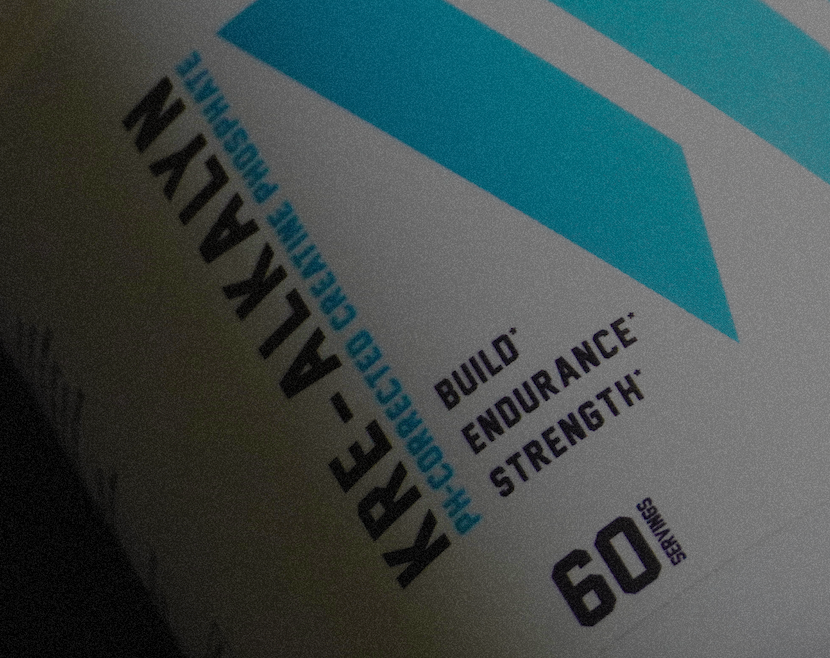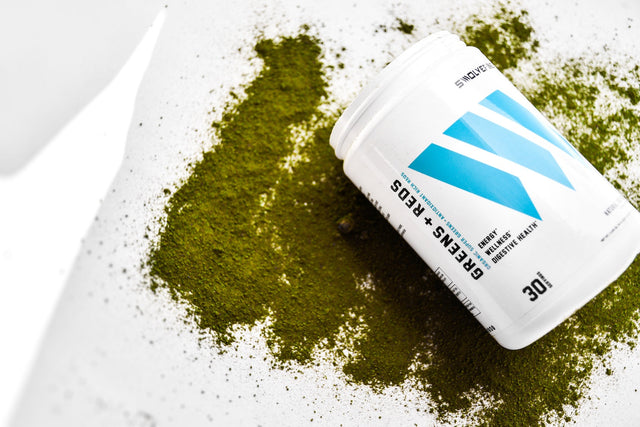As fitness enthusiasts and athletes strive for peak performance, the question arises: Is creatine bad for you? Amidst a sea of contradicting information, this potent supplement continues to spark debate. Many consider it a game-changer for muscle growth and endurance, while others express concerns about potential health risks. So, what’s the truth?
In this article, we’ll delve into the myths and facts surrounding creatine, shedding light on its benefits and drawbacks.
Whether you’re contemplating adding it to your regimen or simply curious about its effects, understanding the science behind creatine is essential for making informed decisions. Join us as we clarify misconceptions and empower you with knowledge for optimal health and performance.
Understanding Creatine: What It Is and Why It Matters
Creatine is a naturally occurring compound found in small amounts in foods like meat and fish and synthesized by the human body, primarily in the liver, kidneys, and pancreas. Composed of three amino acids—arginine, glycine, and methionine—creatine plays a critical role in cellular energy production. Once produced, it is stored predominantly in skeletal muscle, where it serves as a rapid energy source during short-duration, high-intensity activities like sprinting, Olympic lifting, and CrossFit.
What Form of Creatine is Best?
In the context of supplementation, creatine monohydrate is the most widely used and scientifically studied form. Research has consistently demonstrated its safety, bioavailability, and effectiveness in improving physical performance and enhancing muscle mass (Buford et al., 2007 – Journal of the International Society of Sports Nutrition).
Once ingested, creatine increases intramuscular phosphocreatine stores, which are crucial for the regeneration of ATP (adenosine triphosphate)—your body’s primary energy molecule. This process supports greater training volume and intensity, leading to increased strength, power output, and lean muscle gain over time.
Despite the robust scientific backing, creatine is still surrounded by myths and misinformation. Understanding its role in cellular energy metabolism can help individuals make informed decisions about supplementation.
What’s the Best Form of Creatine? Monohydrate vs. Kre-Alkalyn®
When it comes to choosing the best form of creatine, creatine monohydrate continues to reign supreme as the gold standard. Backed by decades of research, creatine monohydrate is the most studied, most affordable, and most bioavailable form available. It has been proven to increase muscle mass, strength, exercise performance, and even cognitive function when taken consistently (Buford et al., 2007 – JISSN).
However, for those who experience bloating, gastrointestinal discomfort, or water retention from monohydrate, another form gaining popularity is Kre-Alkalyn®—a patented, pH-buffered version of creatine. This form is designed to prevent the conversion of creatine to creatinine in the stomach, which may lead to better absorption and less digestive distress. Some users report enhanced results with lower doses and no loading phase, although head-to-head studies show that Kre-Alkalyn and monohydrate produce comparable outcomes in terms of performance (Jagim et al., 2012 – JISSN).
Summary:
-
Creatine Monohydrate: Most researched, effective, and affordable. Ideal for the majority of users.
-
Kre-Alkalyn®: pH-buffered alternative for those with sensitivity to monohydrate; may reduce bloating and require no loading.
If you're just starting out or want the most cost-effective, clinically backed results, creatine monohydrate is your go-to. But if you're looking for something gentler on the stomach, Kre-Alkalyn® offers a premium alternative with a loyal following among experienced athletes
The Science Behind Creatine Supplementation
How Does Creatine Work in the Body?
The effectiveness of creatine lies in its role in the phosphagen energy system—the fastest way the body generates ATP. During high-intensity movements, ATP is rapidly consumed, and phosphocreatine (PCr) acts as a reservoir to replenish it quickly.
Creatine supplementation boosts the availability of PCr in the muscles, enabling the faster regeneration of ATP, thereby improving performance during explosive or repeated efforts. This is especially beneficial in sports requiring power, sprinting, or interval-based training.
Scientific Evidence on Creatine and Performance
Studies show that creatine significantly improves performance in short-term, high-intensity exercises. A meta-analysis published in the Journal of Strength and Conditioning Research concluded that creatine supplementation increased maximum power/strength by 5–15% and work performed during sets of maximal effort muscle contractions by 5–15% (Rawson & Volek, 2003 – JSCR).
Additionally, creatine has been shown to:
-
Increase fat-free mass during resistance training (Branch, 2003 – International Journal of Sport Nutrition and Exercise Metabolism)
-
Enhance muscle cell hydration, which acts as an anabolic signal
-
Improve muscle protein synthesis and training capacity
Creatine’s Role in Recovery and Cognitive Function
Recent studies suggest creatine may also support recovery, reduce muscle damage, and even improve brain function. Creatine plays a role in brain ATP synthesis, and supplementation has been associated with enhanced cognitive performance, particularly in sleep-deprived or older individuals (Avgerinos et al., 2018 – Psychopharmacology).
Common Myths About Creatine—Debunked
Despite being one of the most researched and safest sports supplements, creatine continues to be misunderstood. Here are some of the most common myths—and the facts that debunk them.
Myth 1: Creatine Causes Dehydration and Muscle Cramps
This belief likely originated from creatine’s intracellular water retention effect, leading people to assume it causes systemic dehydration. However, controlled trials show that creatine does not increase the risk of muscle cramps or dehydration. In fact, it may actually enhance hydration status during exercise in hot environments (Dalbo et al., 2008 – Journal of Strength and Conditioning Research).
Myth 2: Creatine Damages the Kidneys
This concern stems from the increase in serum creatinine levels, a waste product filtered by the kidneys. However, creatinine elevation from creatine use is not indicative of kidney dysfunction. Multiple long-term studies show no adverse effects on kidney health in healthy individuals (Poortmans & Francaux, 1999 – Medicine & Science in Sports & Exercise).
Myth 3: Creatine is a Steroid
Creatine is not a steroid and has no impact on endogenous hormone production. While it may enhance strength, lean mass, and power, it does so through cellular energy mechanisms—not anabolic hormone pathways. Unlike steroids, creatine is found in the diet, naturally produced by the body, and legally sold without prescription.
The Complete Guide to Creatine: Benefits, Safety, and Best Practices
Potential Benefits of Creatine for Athletes
Creatine supplementation offers a wide range of benefits for athletes, especially those participating in high-intensity, short-duration activities. One of the most well-documented advantages is its ability to enhance explosive performance, improving efforts in sprinting, weightlifting, and jumping. These sports rely heavily on ATP regeneration, a process in which creatine plays a pivotal role.
In terms of muscle growth, creatine has also been shown to be highly effective. Studies indicate that when paired with resistance training, creatine supplementation significantly increases muscle mass, training volume, and strength gains (Branch, 2003 – IJSNEM). This is likely due to a synergistic combination of cell volumization, enhanced protein synthesis, and improved work output.
Emerging evidence also supports creatine’s role in cognitive enhancement. Several studies suggest that creatine may benefit short-term memory, mental fatigue, and cognitive performance under stress, particularly through increased brain ATP availability (Avgerinos et al., 2018 – Psychopharmacology). While more research is needed, these findings indicate that creatine’s benefits go beyond the gym—making it valuable for students, professionals, and aging adults alike.
Health Risks and Side Effects of Creatine
Although creatine is widely regarded as safe, it’s important to understand its potential side effects, especially for first-time users.
The most common side effect is water retention, which may lead to a temporary increase in body weight. This occurs because creatine pulls water into the muscle cells, contributing to muscle fullness but potentially affecting individuals managing weight-sensitive goals.
Another issue is gastrointestinal discomfort, including bloating, nausea, and diarrhea—often linked to high dosing during loading phases. To reduce these effects, it's best to start with a lower dose, take creatine with food, and maintain proper hydration.
One of the more controversial topics is creatine’s effect on the kidneys. Although creatine is broken down into creatinine (a marker of kidney function), research shows that supplementation does not impair renal function in healthy individuals (Poortmans & Francaux, 1999 – MSSE). That said, people with pre-existing kidney issues should consult a healthcare professional before beginning supplementation.
Creatine and Kidney Health: What Research Says
Concerns about creatine and kidney health have persisted for years, primarily due to its conversion into creatinine. However, clinical research has consistently debunked the myth that creatine causes kidney damage in healthy individuals.
A landmark study published in the Journal of the International Society of Sports Nutrition found no harmful effects on renal function after long-term use of creatine in resistance-trained athletes (Kreider et al., 2017 – JISSN). Similarly, a study published in Medicine & Science in Sports & Exercise confirmed the absence of kidney damage in athletes who supplemented for over five years (Poortmans & Francaux, 1999 – MSSE).
The key takeaway? Creatine is safe for kidney health when used appropriately by individuals without existing medical conditions.
Who Should Consider Taking Creatine?
Creatine isn’t just for bodybuilders. Athletes across a broad range of disciplines—sprinters, powerlifters, CrossFitters, and combat sports athletes—can benefit from creatine’s ability to enhance training capacity and support recovery.
But it doesn’t stop there. Older adults may also benefit significantly. Research suggests creatine supplementation can help mitigate age-related muscle loss (sarcopenia), improving both strength and mobility (Candow et al., 2014 – Aging Disease). Some findings also indicate potential benefits for cognitive function in aging populations.
In short, creatine can support:
-
Athletes training in anaerobic sports
-
Lifters seeking hypertrophy and strength
-
Aging adults aiming to maintain physical and cognitive health
-
Vegetarians/Vegans, who may have lower dietary creatine intake
However, individuals with chronic illness, especially related to renal function, should consult with a healthcare provider before starting supplementation.
How to Use Creatine Safely and Effectively
To get the most out of creatine, timing and dosage matter.
Loading Phase (Optional)
-
20g/day for 5–7 days, split into four 5g doses
-
Quickly saturates muscle creatine stores
Maintenance Phase
-
3–5g/day thereafter to maintain elevated creatine levels
-
Can also be used without a loading phase, with full saturation achieved in 3–4 weeks
To minimize side effects and maximize uptake:
-
Take creatine with food or post-workout
-
Drink plenty of water to support hydration and reduce cramping
-
Pair with carbohydrates to potentially enhance absorption via insulin response
This protocol applies to creatine monohydrate, though alternative forms like Kre-Alkalyn® may offer different dosing benefits and may not require a loading phase (see section above).
Conclusion: Making Informed Choices About Creatine
In conclusion, creatine is a well-researched and widely used supplement that offers a range of benefits for athletes and fitness enthusiasts. By increasing the availability of phosphocreatine in the muscles, creatine can enhance performance in high-intensity, short-duration activities, promote muscle growth, and support cognitive function. Despite common myths and misconceptions, research has shown that creatine is generally safe for most individuals and does not negatively affect kidney function in healthy individuals.
However, it is important to be aware of potential side effects, such as water retention and gastrointestinal distress, and to use creatine safely and effectively. Starting with a lower dose, staying well-hydrated, and taking creatine with food can help to minimize the risk of side effects. Individuals with pre-existing health conditions should consult with a healthcare professional before starting supplementation.
By understanding the science behind creatine and making informed choices about its use, individuals can optimize their health and performance. Whether you are an athlete looking to enhance your training, an older adult seeking to maintain muscle mass, or simply curious about the potential benefits of creatine, this supplement can be a valuable addition to your fitness regimen. By debunking myths and embracing the facts, you can make the best decisions for your health and fitness goals.
Find similar articles:
Supplements






